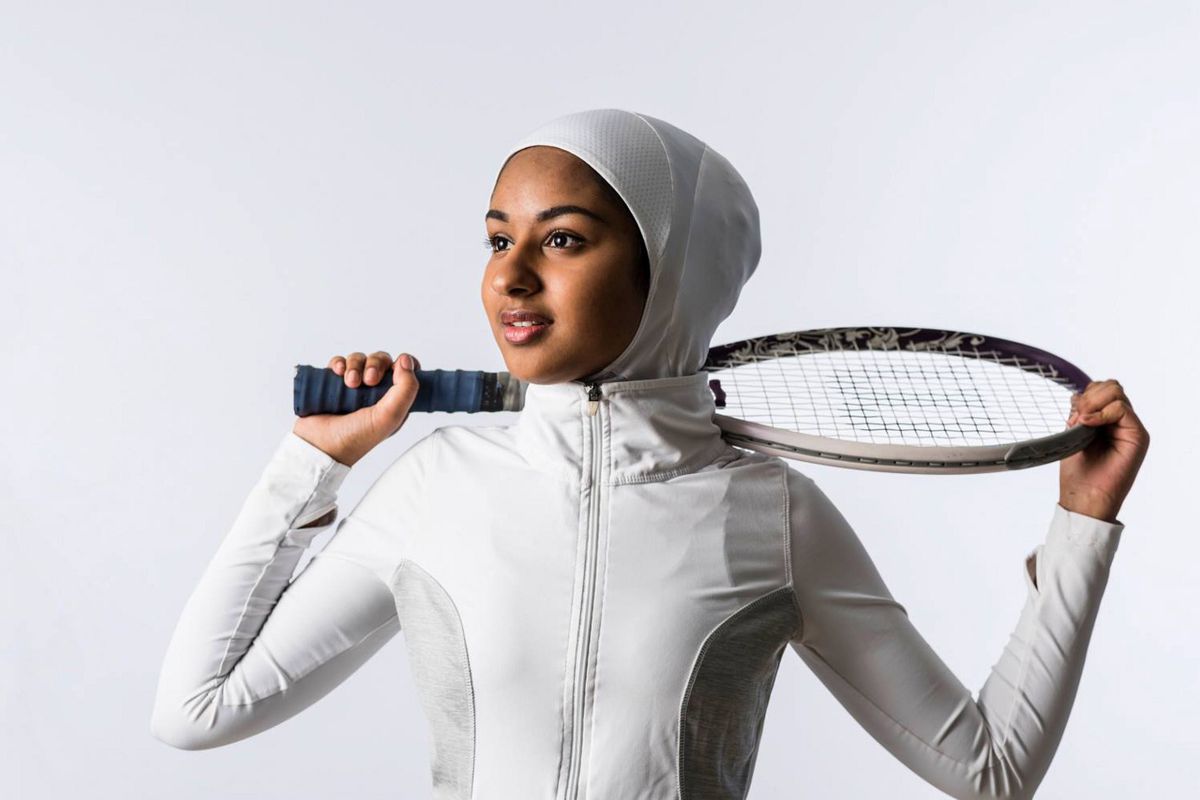A video from last year’s WAFF Women’s Club Championship has gone viral, and for all the right reasons.
The football game was played in Jordan, between Arab Orthodox club and Shabab al Ordon club last October. In the clip, football truly earns its title as the beautiful game; an Arab Orthodox Club player’s hijab fell from her head during the match as she tried to run past her opponents. In response, five of her opponents instantly formed a huddle around her to protect her modesty as she knelt down to fix her headscarf. For me, the most heart-warming part of this clip is how it seemed instinctual for her opponents to stop the play to protect the modesty of their fellow woman; neither the rivalry of the game, nor the fact that none of the opponents involved were wearing a hijab mattered.
It’s rather disappointing that the emergence of this story of comradery circulates at a similar time to the story of the 16 year old athlete from Ohio, Noor Abukaram. After completing a 5km race for her school, achieving her personal best time, Noor was told that she had been disqualified, all because she did not have a waiver to show official approval of her religious headwear.
The two stories seem in such stark contrast; the beauty in football players protecting the modesty of an opponent, ensuring her continued inclusion within the game, compared to the explicit exclusion of Noor from the race on the basis of her religious dress. Noor, herself, has said that she feels that this was discriminatory “against my religion.” I find it so hard to fathom how a) this uniform rule, whereby religious headwear requires a waiver, was able to become established, and b) how anyone can justifying excluding a participant from a race on the basis of their religious dress and, therefore, identity.
And the sad thing is, while the story of the football match in Jordan may be the first of its kind to circulate internationally, Noor’s is not. Only last year, a 16 year old basketball player in Philadelphia was forced to remove herself from the game, as she needed a waiver to wear her hijab.
On the other side of the spectrum, the BBC reported that last month a female teenage swimmer in Alaska was disqualified after winning her race, as her swimsuit, which was issued by the school, was revealing too much of her bottom.
So not only do these stories reveal an issue of religious discrimination within sporting rules, but also that women are being singled out and excluded on the basis of their dress. I challenge you to find a story where a male athlete has been disqualified from a race, that he has already partaken in, on the grounds that his uniform was unsuitable. This poses as a big issue for it highlights the sexualisation of women in sports, a topic that is slowly becoming a subject of inquiry in social research. An issue that needs to be resolved.
I hope that the story of the Jordan based football match managed to restore your faith in humanity a little, however the other stories I’ve covered highlight how we need to stop measuring female athletes by the way that they dress, but by their athletic abilities. The ability of Noor Abukaram, the Philadelphian basketball player and the Alaskan swimmer all deserve to be recognised, and not cast aside because of how they are dressed.
Image Credit: USA Today

